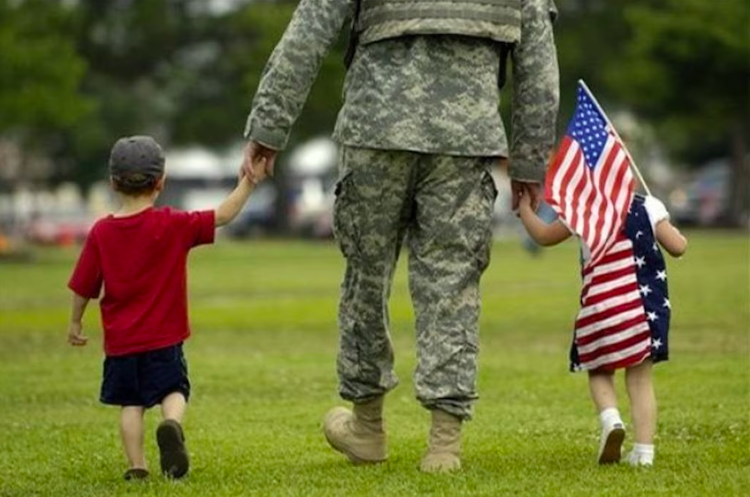The New York Times recently ran an article titled “Who Runs the Best U.S. Schools? It May Be the Defense Department.” Being tied to the Department of Defense, and having sent my kids to some of their schools, I was compelled to read it. It made some very good points, but came up quite a bit short on what I thought was probably the most important one.
The Times marveled at the results of DoD schools, and for good reason. While most every other school district in the nation has suffered a decline in math and reading scores over the past decade (especially in light of the Covid pandemic), DoD schools have improved. The reason (according to the Times)? Generally, “more money.” From supplies to stable funding to better teacher’s pay. But what did they miss? They touched on it only very lightly in one line: “For starters, families have access to housing and health care through the military, and at least one parent has a job.”

And it’s not just that they have a job. It’s the nature of that job that I think matters. Members of the military are as a group called upon to shoulder more responsibility and exhibit more personal discipline more quickly in life than their typical peers. Yes, they don’t have to go through the worries of health care and housing (although, on each count, these are not always the best), but in each family, there is (at least) one parent who has a job that relies on being a part of something critically important. They understand what it means to be part of a cohesive unit that has to get the job done — often with life or death consequences — and some of that spills into the life of the military family. They know the mantras: “We’re all in this together; we’ve all got a job to do; we’re all facing these challenges and we’ve all got to do our part,” and that attitude bleeds over to the home.
I’ve marveled at the fact that my family moved several times in my career (not nearly as much as others, but still, a good amount and over long distances at that), and we survived. We didn’t sit there pondering whether we should go or not. I got the word, and we went. All of us. It may have crossed their minds to want to say “no thanks,” but they always came through, no matter how hard it was on them (and for that I’m very thankful).
And when it came to school in the DoD system, most everyone has the same deal. Time for Mom or Dad to go? Time for them to go. Say goodbye to your friends and start over somewhere else. And to some extent, I know those kids had some of the same mindset as their parents…as least in as much they could understand. This was happening. Let’s roll with it. Just like Mom and Dad are rolling with it. And when it came to school, wherever they ended up, Mom and Dad weren’t going to put up with a punk messing it up. “This family is a team. We’re going to pull through all this together, and if you want to step out of line, we’ll put you back in.” It’s the military way.
I’m not saying this is the case with all military families, but over a large population, that discipline and experience has to factor in for something. Personally, MIcha and I did all we could for our kids in the school system (including finding alternatives when we were out of the DoD system). But is this the way all parents across all school districts work? Of course not. There can be no argument though that stability and discipline within the family has to play a big part in the performance of the children. And the military builds that into a family unit.
The question then is this: can we get those same traits and conditions to translate into a non-military scenario? Sadly, the answer is most likely “no.” By virtue of being the kind of people who join the military in the first place, I think military parents skew that data. We cannot expect the same sacrifices and discipline of the civilian population when 1) they are not already predisposed to it – enough so that they’re willing to sacrifice so much, and 2) the military has had that predisposition constantly reinforced by the very structure of their training and workplace environments.
I know this: that while many of my high school classmates were hanging out back home still figuring out where they were going to do with their lives, I was being shipped halfway around the world to speak a foreign language and work in a box filled with millions of dollars worth of equipment to defend my country. I’m not saying this to disparage anyone’s high school classmates (and especially not mine – arguably one of the greatest graduating classes to ever cross the stage at Lourdes Academy). I’m just saying it as an observation on the level of work I was doing and the challenging conditions I faced as a 20-year-old when the average kid my age was drinking his way through college. And it’s under those conditions that I started my family. They lived and grew with it, and my children went to school with it. And I think they came out of it tested in life’s experiences and ready for more.
And I think that’s the real reason DoD schools succeed.
